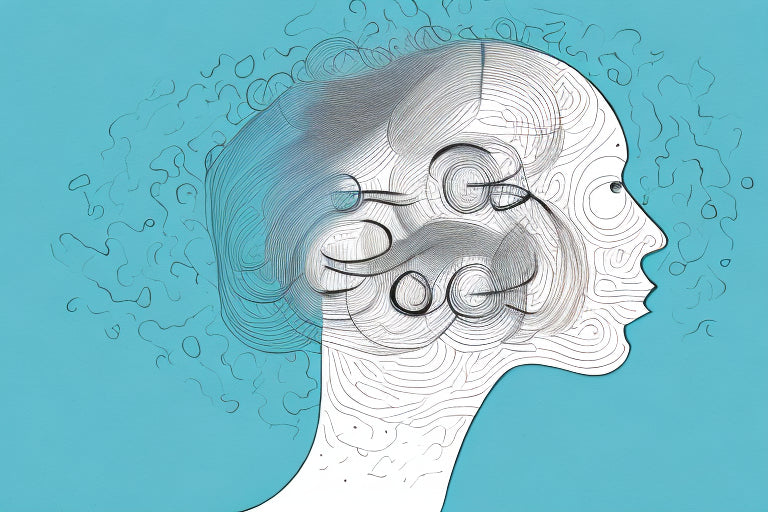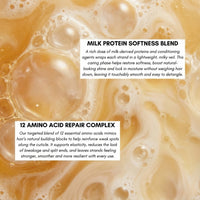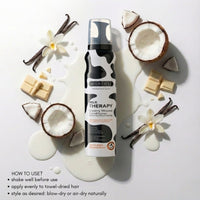The Best Hair Regrowth Treatments for a Healthy Scalp
Posted by MORFOSE COSMETICS

The Best Hair Regrowth Treatments for a Healthy Scalp
Dealing with hair loss is never easy, but there are numerous hair regrowth treatments available on the market. To help you make an informed decision, we've compiled a comprehensive guide to the best hair regrowth treatments for a healthy scalp. Whether you're looking for topical treatments, oral supplements, or in-office procedures, this article has got you covered.
Understanding Hair Loss and Regrowth
Before we dive into the different types of hair regrowth treatments, it's important to understand how hair loss and regrowth work. Hair loss is a normal part of the hair growth cycle, but excessive hair loss can indicate a problem with your scalp or hair follicles.
When it comes to hair loss, genetics can play a major role. If your parents or grandparents experienced hair loss, it's likely that you will too. Hormonal imbalances can also contribute to hair loss, particularly in women. Medical conditions like alopecia can cause hair loss as well.
Stress is another factor that can contribute to hair loss. When you're under a lot of stress, your body produces more cortisol, which can lead to hair loss. Poor nutrition can also contribute to hair loss, as your hair needs certain vitamins and minerals to grow properly.
The hair growth cycle is made up of three stages: anagen, catagen, and telogen. Anagen is the active growth phase, during which your hair can grow up to half an inch per month. Catagen is the transitional phase, during which your hair follicles shrink and detach from your scalp. Telogen is the resting phase, during which your hair follicles remain dormant for about three months before falling out and being replaced by new hair.
Interrupting the hair growth cycle can lead to hair loss. For example, if your hair follicles are damaged or inflamed, your hair may fall out prematurely. Certain medications can also interrupt the hair growth cycle, leading to hair loss.
Factors Affecting Hair Regrowth
Several factors can affect your hair's ability to regrow. Age is one of the biggest factors, as your hair follicles become less active as you get older. Genetics also play a role in hair regrowth, as some people are simply predisposed to hair loss and may have a harder time regrowing hair.
Overall scalp health is also important when it comes to hair regrowth. If your scalp is dry, itchy, or inflamed, it can be harder for your hair to grow properly. Using gentle, nourishing hair products and avoiding harsh chemicals can help improve scalp health and promote hair regrowth.
In conclusion, understanding the causes of hair loss and the factors that affect hair regrowth is important when considering hair regrowth treatments. By addressing underlying issues and promoting scalp health, you can help improve your hair's ability to regrow and maintain a healthy head of hair.
Topical Hair Regrowth Treatments
Dealing with hair loss can be a frustrating experience, but there are a variety of topical hair regrowth treatments available that can help stimulate hair growth. In this article, we'll explore some of the most effective topical treatments and their potential benefits and drawbacks.
Minoxidil (Rogaine)
Minoxidil is one of the most popular topical treatments for hair loss, and for good reason. It has been clinically proven to increase hair density and thickness, and is available over-the-counter in both foam and liquid formulations.
The way minoxidil works is by widening blood vessels in the scalp, allowing more oxygen, blood, and nutrients to reach the hair follicles. This increased blood flow can help stimulate hair growth in areas where hair has become thin or sparse.
While minoxidil is generally considered safe, it's worth noting that results can vary from person to person. Some people may see significant improvement in hair growth, while others may not see any results at all. Additionally, minoxidil can cause side effects like itching, dryness, and scalp irritation in some users.
Topical Corticosteroids
Corticosteroids are anti-inflammatory agents that can help reduce scalp inflammation and promote hair regrowth. They are available in both prescription and over-the-counter formulations.
Topical corticosteroids work by suppressing the immune system and reducing inflammation in the scalp. This can help create a healthier environment for hair growth, and can also help reduce the symptoms of conditions like alopecia areata.
However, it's important to note that prolonged use of corticosteroids can lead to side effects like thinning skin, acne, and increased hair growth in other areas of the body. Additionally, corticosteroids may not be effective for all types of hair loss.
Essential Oils and Natural Remedies
If you're looking for a more natural approach to hair regrowth, essential oils and natural remedies may be worth considering.
Essential oils like lavender, peppermint, and rosemary have been shown to improve scalp health and promote hair growth. These oils can be applied directly to the scalp, or added to shampoo or conditioner for added benefits.
Additionally, natural remedies like onion juice and aloe vera can also be effective in stimulating hair regrowth. Onion juice contains sulfur, which can help improve blood circulation and promote hair growth. Aloe vera has anti-inflammatory properties, and can help soothe an irritated scalp.
However, it's important to note that essential oils and natural remedies have not been extensively studied, and their effectiveness may vary depending on the individual. It's also important to use caution when using natural remedies, as some can cause skin irritation or allergic reactions.
Overall, there are a variety of topical hair regrowth treatments available that can help stimulate hair growth and improve the appearance of thinning hair. However, it's important to talk to your healthcare provider before starting any new treatment, and to be patient when waiting for results.
Oral Hair Regrowth Supplements
Are you tired of trying different hair products to promote hair growth, but nothing seems to work? Oral hair regrowth supplements might be the solution you have been looking for. These supplements work by providing essential vitamins and minerals to promote hair growth from within. Here are some of the best oral supplements:
Biotin
Biotin is a B-vitamin that plays a crucial role in the production of keratin, the protein that makes up hair, skin, and nails. It has been shown to improve hair thickness, strength, and shine.
If you are experiencing hair loss or thinning, biotin supplements might be worth considering. However, it's important to consult with a healthcare professional before taking biotin, as high doses can lead to unwanted side effects.
Finasteride (Propecia)
Finasteride is a prescription medication that works by blocking the production of DHT, a hormone that causes hair follicles to shrink and eventually stop producing hair. It is commonly used to treat male pattern baldness, but it can also be effective for women.
However, finasteride can cause unwanted side effects like decreased libido and breast tenderness in some individuals. It is important to talk to your doctor about the potential risks and benefits of taking finasteride.
Vitamin D and Iron Supplements
Vitamin D and iron are essential nutrients for overall health, and they can also promote hair growth. Low levels of these nutrients have been linked to hair loss and thinning.
If you are deficient in vitamin D or iron, supplements can be effective in boosting levels. However, it's important to get these nutrients through a healthy diet as well. Foods like salmon, eggs, and leafy greens are great sources of both vitamin D and iron.
Remember, while oral hair regrowth supplements can be effective, they are not a magic solution. It's important to maintain a healthy lifestyle, including a balanced diet and regular exercise, to promote overall health and hair growth.
In-Office Hair Regrowth Procedures
If topical treatments and supplements are not effective, there are several in-office procedures that can stimulate hair regrowth. These procedures can help individuals who are experiencing hair loss due to genetics, hormonal changes, or medical conditions such as alopecia.
Platelet-Rich Plasma (PRP) Therapy
PRP therapy involves injecting a concentrated solution of the patient's own platelets into the scalp to promote hair regrowth. Platelets contain growth factors that can stimulate hair follicles and improve scalp health. This treatment is particularly effective for individuals who have experienced hair loss due to androgenetic alopecia, a common form of hair loss that affects both men and women.
PRP therapy is a safe and effective treatment option, but it may require multiple sessions for optimal results. The procedure typically takes less than an hour, and patients can resume normal activities immediately afterwards.
Low-Level Laser Therapy (LLLT)
LLLT is a non-invasive treatment that involves using low-level lasers to stimulate hair follicles and promote hair regrowth. It works by increasing blood flow to the scalp and improving cellular activity in the hair follicles. This treatment is particularly effective for individuals who have experienced hair loss due to stress or a poor diet.
LLLT can be performed in-office or at home with a laser cap or comb. Results may vary depending on the individual, and multiple sessions may be required for optimal results. The treatment is painless and does not require any downtime.
Hair Transplant Surgery
Hair transplant surgery involves taking hair follicles from areas of the scalp with healthy hair growth and transplanting them to areas with thinning or balding hair. This treatment is particularly effective for individuals who have experienced hair loss due to trauma, such as burns or scarring.
While hair transplant surgery is a more invasive treatment option, it can provide long-lasting and natural-looking results. The procedure can take several hours, and patients may experience some discomfort and swelling afterwards. However, most patients are able to return to work and other activities within a few days.
Overall, in-office hair regrowth procedures can be an effective solution for individuals who are experiencing hair loss. It is important to consult with a qualified healthcare provider to determine which treatment option is best for your individual needs.
Conclusion
There are several effective hair regrowth treatments available on the market, including topical treatments, oral supplements, and in-office procedures. It's important to consult with a healthcare professional before starting any hair regrowth treatment, and to address underlying factors like stress, nutrition, and scalp health for the best results. With patience and persistence, you can achieve a healthy and full head of hair.



